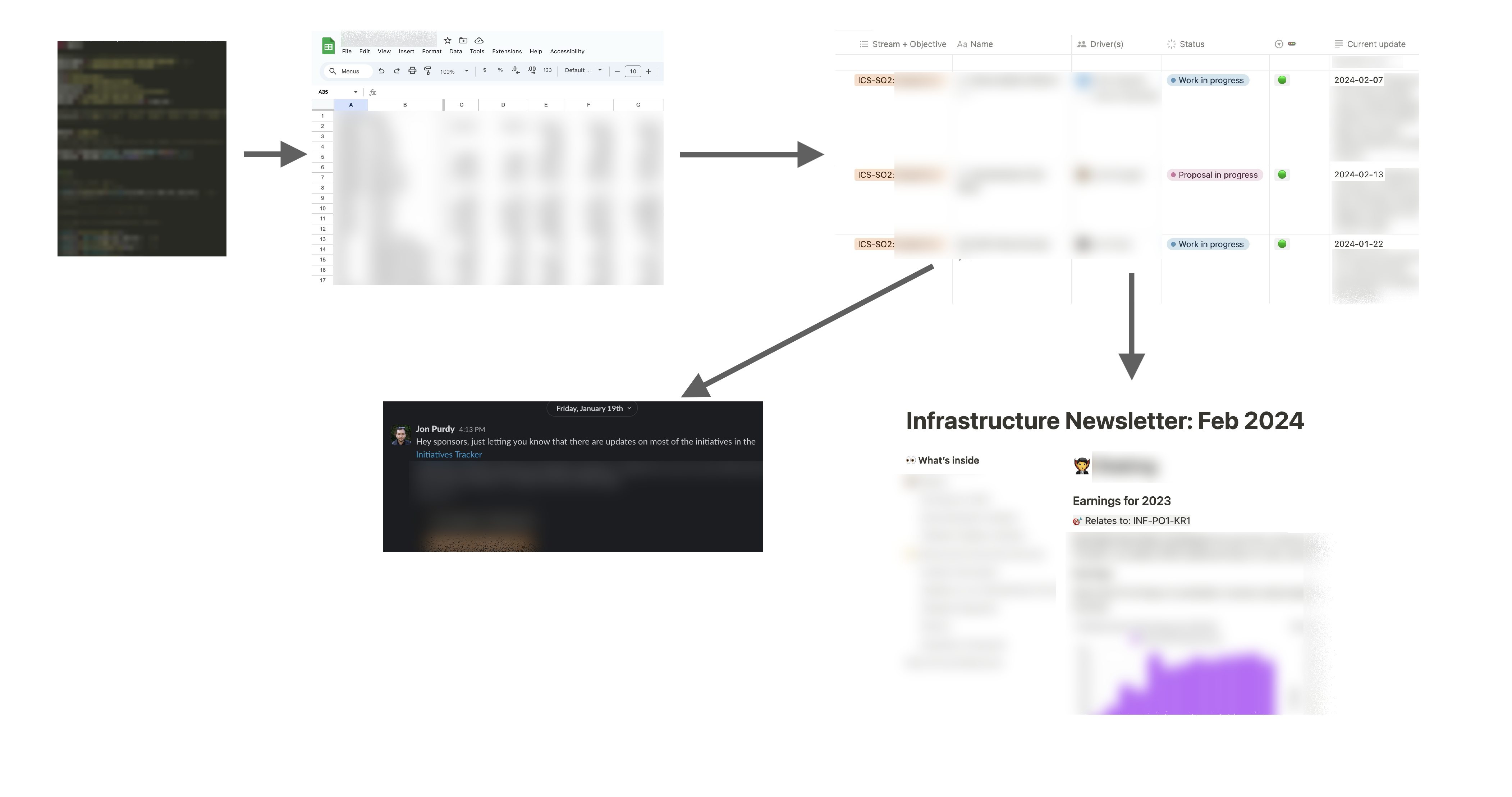How I Work Cyclically

I want to use my brain for working on big picture and detailed work, not for planning on what to work on. The world operates on cycles: breathing every 3-10 seconds, work/play/sleep every 24 hours, quarterly/annual financials every 3 or 12 months.
My strategy: use what's essentially a recurring to-do list.
For each cycle:
- List the task(s) that need to get done
For each task:
- Details about how to complete the task, including links to previous task output, where to gather details, etc.
- A checklist of subtasks or steps for completion
- Prerequisite tasks (ie. what tasks need to be done to feed input into the current task)
- The last date the task was done

As an Infrastructure TPM at ChainSafe, this is what my list generally looks like:
Daily
- Check and follow up on email
- Check and follow up on Slack
- Check incidents channel to see if anything bad happened
Weekly
- One-line status update on each program initiative on "initiatives tracker", and setting green/yellow/red status
- Looking for changes to infrastructure
- People allocations: verify team members worked on what they committed do, update this for the next week
Bi-weekly
- Update program sponsors using inputs from initiative tracker, 2-3 bullet points on highlights/things to watch out for (and send the link to the full tracker)
- Verify transactions for all Infrastructure spending
- Do program retrospective and planning session
- Evaluate new ideas/opportunities using Evaluation Framework
Monthly
- Pull stats (monthly revenue and expenses) via Python script
- Write Infrastructure Newsletter (targeting wide company audience) using inputs from Python script and biweekly updates
- Update exec audience with specific requested stats
Quarterly
- Quarterly OKRs: review current, set new ones
Yearly
- Annual program objectives: review current, set new ones
At the start of a new period (weekly, for example), I know that I have 3 things to do that are due at the end of that week. So as long as I get them done at some point that week, I'm doing well and can relax. If it's Friday and I still need to accomplish tasks on my weekly list, I know I need to crunch to get them done (or at least catch up on them the next week).
Sometimes, the end of periods collides (ie. the end of the month could also be the end of the week). This is generally not a problem since I am not working to 100% capacity※, so I can easily spread my work out over the course of each time period.
‣ the closer we get to one hundred percent utilization, the longer the throughput time.
‣ The paradox is that a greater focus on utilizing resources efficiently tends to increase the amount of work there is to do.
